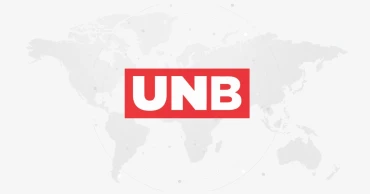tobacco products
E-cigarettes, emerging tobacco products fully banned in Bangladesh
E-cigarettes, vapes and other emerging tobacco products have been completely banned in Bangladesh as the Smoking and Tobacco Products Use Control (Amendment) Ordinance, 2025 has come into effect with provisions for jail terms and hefty fines for violations.
The ordinance, proposed by the Health Services Division under the Ministry of Health and Family Welfare to strengthen the existing Smoking and Tobacco Products Use Control Act, 2005, came into effect on December 30 following approval by the President, said the Chief Adviser’s press wing on Thursday.
Under the new law, the production, import, export, storage, sale and use of e-cigarettes and emerging tobacco products have been declared punishable offences.
Violators may face up to six months in jail and a fine of up to Tk 5 lakh.
Foreign cigarettes imported under false declaration seized at Ctg Port
The other objectives of the ordinance are to protect people from the harmful effects of tobacco and nicotine products and repeal separate laws related to bidi production by introducing a unified legal framework.
Penalties have been significantly increased under the amended ordinance with provisions for cancellation of licences and seizure of goods in the case of companies.
The ordinance also includes provisions for filing and conducting cases under the Code of Criminal Procedure
One of the key changes is the expansion of the definition of ‘tobacco products’ to include e-cigarettes, Electronic Nicotine Delivery Systems, Heated Tobacco Products and nicotine pouches.
The government has also been empowered to declare any similar product as a tobacco product through gazette notification.
Separate definitions for ‘nicotine’ and ‘nicotine products’ have been added, while the scope of ‘public place’ has been significantly broadened.
The government also banned the use of tobacco products in all public places and public transport.
The fine for violating this provision has been increased from Tk 300 to Tk 2,000.
All forms of tobacco advertising and promotion have been prohibited in print, electronic and online media, including social media and OTT platforms.
The sale of tobacco products has also been banned within 100 metres of educational institutions, hospitals, clinics, playgrounds and children’s parks.
Display and promotion of tobacco packs at points of sale have been banned,along with the use of tobacco company names or logos in corporate social responsibility activities and financial sponsorship of events or programmes by tobacco companies.
The ordinance has imposed a complete ban on the production, marketing and use of bidis made from kumbi leaves and tendu leaves.
Tk 5,000 fine for selling cigarettes near schools, hospitals
Mixing any harmful or addictive substances with tobacco or tobacco products has been declared a punishable offence.
The law has further strengthened provisions on health warnings and standard packaging, making it mandatory for tobacco packs to carry graphic health warnings covering 75 percent of the package.
The sale of tobacco products without standard packaging has been prohibited.
2 months ago
Bangladesh Economic Association proposes 70 percent tax on cigarettes, tobacco
The Bangladesh Economic Association (BEA) has proposed a 70 percent tax on all types of cigarettes and tobacco in the next budget.
The association reckons that doing so will reduce smoking by about 66 percent, alongside generating revenue of Tk1,700 crore for state coffers.
The proposal was submitted to the National Board of Revenue (NBR) during the pre-budget discussion held at the NBR Building on Sunday (February 18).
The General Secretary of the BEA Professor Dr. Md. Aynul Islam presented the budget proposal. Vice President of the association Professor Hannana Begum was present.
Read more: Govt cut VAT, duty on import of 4 essential items ahead of Ramadan
According to the BEA's proposal, imposing a single supplementary duty of 70 percent on all types of cigarettes would increase the price of cigarettes by an average of 130 percent.
Smoking will be reduced by 66 percent. About 70 lakh smokers will quit smoking, and about 71 lakh young people will stop habituating to smoking. Also, the additional tax revenue of the government will be earned at least Tk1700 crores, the proposal stated.
Similarly, the BEA demanded to impose a tax of 70 percent on all types of tobacco products including smokeless tobacco such as jorda, gul, sadapata, etc.
On the other hand, in the case of bidi, if the tax is imposed at the rate of Tk 4.90 on the retail price of every 25 shalak (piece) packet, the government will be able to collect additional revenue of Tk 800 crore.
Read more: ICMAB delegation takes part in pre-budget discussion with NBR
The BEA thinks with such a tax increase; revenue earning will be raised and it would help to revive the economy from the ongoing economic crisis. The BEA has a total of 27 new sources of revenue income.
At this time, Prof Aynul said, as a method of gathering resources for the upcoming budget, no pressure can be applied on the general population, such as the poor, lower class, lower middle class, and middle class.
Due to various reasons, this class of people is now in a severe economic crisis. It would be unfair at this moment to rely completely on them as in the past for tax collection.
In that case, the imposition of additional income tax on these three groups – the super-rich, the rich, and the upper-middle class – can be considered, said Prof Aynul.
Read more: PROGGA, ATMA for imposing specific taxes on tobacco products
2 years ago
Tobacco products to become more affordable: Anti-tobacco platforms
In a quick reaction to the proposed national budget of 2021-22 fiscal year, two anti-tobacco platforms – PROGGA and Anti-Tobacco Media Alliance (ATMA) on Thursday claimed that tobacco products will become more affordable in the upcoming fiscal year.
The proposed budget has kept the prices unchanged for low-tier cigarettes which constitute around 72 percent of the cigarette market. The per capita income of the country, however, saw a 9 percent increase since last fiscal year, they said.
Also Read: National Budget: Progga, ATMA for hiking tobacco goods
The anti-tobacco platforms sent their reaction to the media after Finance Minister AHM Mustafa Kamal started unveiling the proposed budget in Parliament in the afternoon.
The proposed budget, if implemented, will considerably reduce the real prices of cigarettes and encourage the poor and the youth demographic to get hooked on the deadly addiction of smoking.
The same goes for bidi and smokeless tobacco (jarda and gul) where the taxes and prices have also been kept unchanged. This would put the low income people, particularly women, into greater health risk.
Also Read: Budget: Prices of tobacco products up, gold down
If the proposed budget is finally passed, tobacco companies will be the only beneficiaries and the government will lose revenue opportunities.
Such a budget will only encourage tobacco business and ignore hundreds of thousands of deaths, impairment, massive socioeconomic and environmental damage this industry causes, they said.
The proposed budget has kept the prices of and taxes on low and medium categories cigarettes unchanged. The prices for 10 sticks of high and premium tier cigarettes have been increased by only BDT 5 (5.2 percent hike) and BDT 7 (5.5 percent hike), setting the prices at Tk 102 and 135 respectively.
The existing 65 percent supplementary duty has been unchanged. This means the prices of per stick high and premium tier cigarettes will go up by only 50 paisa and 70 paisa respectively, which is a very negligible increase compared to the increase in per capita income.
On the contrary, due to faulty tax structure, tobacco companies will pocket a sizable portion of this increased price, and thus they will be encouraged in death trade, which is quite alarming.
However, if the government imposed tiered specific supplementary duty as demanded by anti-tobacco organizations, it would have generated additional revenues of BDT 3400 crores, which could have been used to deal with the losses related to coronavirus pandemic, said the platforms.
Bidi and smokeless tobacco (jarda and gul), known enemies to public health, have seen no change in their prices and taxes in the proposed budget. Considering the rise in per capita income, these harmful products will become more affordable.
This would undoubtedly put the low income people, particularly women, into greater health risk.
Currently, more than 50 percent of the country's 37.8 million adult tobacco users use smokeless tobacco products. It is concerning that despite such a large user base, revenues from smokeless tobacco items constitute less than 1 percent of total tobacco revenues.
The government has been losing opportunities of earning additional revenues from this sector. It is impossible to achieve a tobacco-free Bangladesh while giving tobacco companies free passes like this.
“The proposed budget does not reflect any proposals or suggestions from anti-tobacco organizations. The only thing it safeguards is tobacco companies' interests. Once implemented, it will make tobacco products more affordable and increase tobacco-related deaths and other losses. So, we urge the government to incorporate our price and tax proposals in the final budget, ”said PROGGA (Knowledge for Progress) Executive Director ABM Zubair in his reaction to the proposed budget.
Among others, the proposed budget keeps both the existing 45 percent corporate tax on all tobacco companies (cigs, bidis, SLTs) and 2.5 percent Surcharge on tobacco manufacturer's income unchanged.
According to WHO, smokers are more likely to get severely ill from covid-19 infection than non-smokers. Despite all such warnings, the proposed budget failed to make any effort to discourage use of tobacco products for its lack of effective price and tax measures which is utterly frustrating for anti-tobacco activists, they said.
4 years ago
Doctors for raising tobacco tax to protect public health
Scores of prominent doctors have urged the government to hike tobacco tax in the budget to protect public health.
In a joint statement on Friday, initiated by Dhaka Ahsania Mission, 121 doctors said tobacco was involved in six of the eight leading causes of preventable death worldwide.
The statement noted that cigarettes are very cheap and readily available in the market due to the multi-layered tax structure of cigarettes in Bangladesh depending on the features and brands.
As a result, consumers are able to choose cheaper cigarettes instead of quitting, and the use of cigarettes has been relatively similar in recent years. The availability of tobacco products must be reduced through tax increases, said the doctors.
Also read: Speakers want specific taxes imposed to increase price of tobacco products
According to the Global Adult Tobacco Survey (GATS), tobacco users have a 57 percent higher risk of developing tobacco-related diseases such as heart disease, stroke, COPD or lung cancer, and a 109 percent higher risk of other tobacco-related cancers.
According to the statement, more than 1,61,000 people die of tobacco-related diseases every year in Bangladesh.
4 years ago
PROGGA, ATMA for imposing specific taxes on tobacco products
Research and Advocacy Organization PROGGA (Knowledge for Progress) and Anti-Tobacco Media Alliance (ATMA) have demanded the government to impose specific taxes on cigarettes and other tobacco products in the upcoming budget for 2021-22.
In a press conference held virtually on Tuesday, the two organizations unveiled their proposals regarding tobacco taxes and prices in the 2021-22 FY national budget.
Implementation of proposals would prevent premature deaths of nearly 390,000 current adults and 400,000 current youth, according to release.
Also read: Dhaka Conference: Amend tobacco laws, impose specific taxes
In addition, supplementary duty, health development surcharge and VAT on cigarettes would also earn the government Tk 34 billion in additional revenues, the organizations claim.
The Project Head of Tobacco Control at PROGGA Md Hasan Shahriar presented the budget proposals are-- Introducing a tiered specific excise (supplementary duty -SD) with uniform tax burden (SD share of 65% of final retail price) across all cigarette brands.
In the low-tier, the retail price should be set at 50 for 10 sticks, followed by Tk 32.50 as specific supplementary duty (SD); In the medium-tier set the retail price at Tk 70 for 10 sticks and Tk 45.50 should be imposed as SD; In the high-tier, the retail price should be set at 110for 10 sticks, followed by Tk 71.50 as SD; and in the premium tier, set the retail price at Tk 140 for 10 sticks and BDT 91 should be imposed as SD.
Read Amend existing law to build tobacco-free Bangladesh
Reducing price tiers from four to two in the medium-term (2021-22 to 2025-26) by reducing the gaps in final prices and tax rates between cigarettes brands
For 25 non-filtered bidi sticks, the retail price should be Tk 25, followed by a specific supplementary duty of Tk 11.25. The price for 20 filtered sticks should be Tk 20, which will be followed by a specific supplementary duty of Tk 9. As a result of such measures, in both filtered and non-filtered bidis, the specific supplementary duty will be 45 percent of final retail prices.
For SLT products, the price per 10-gram jarda and gul should be Tk 45 and 25 respectively. A specific supplementary duty of Tk 27 should be imposed on per 10-gram jarda. For gul, the specific supplementary duty should be Tk 15. As a result of such measures, in both jarda and gul, the specific supplementary duty will be 60 percent of final retail prices.
Read Bring smokeless tobacco products under tax net: PROGGA
They also propose to retain the existing 15% Value Added Tax (VAT) and 1% Heath Development Surcharge on all tobacco products.
According to the Global Adult Tobacco Survey (GATS), 2017, between 2009 and 2017, there has been a 1.5 million increase in the number of cigarette users. The numbers reveal that the existing tobacco tax structure has not been contributing to make Bangladesh a tobacco-free country by 2040, as envisioned by the Honorable Prime Minister.
With the ongoing second wave of Covid-19 pandemic, the health sector and overall economy of the country are going through precarious condition. If tobacco use goes unchecked during such a period of vulnerabilities, it would put the additional risk for public health, Shahriar added.
Also read:1.26 lakh people die in Bangladesh every year in diseases ...
According to World Health Organization (WHO), smokers are more likely to become severely ill when infected with covid-19. This makes the existing tobacco users, around 40 million in number, extremely vulnerable to severe covid-19 infection.
In Bangladesh, tobacco use claims 126,000 lives prematurely each year. In a 2019 study titled “Economic Cost of Tobacco Use in Bangladesh: A Health Cost Approach”, it was revealed that in 2017-18, the economic cost (medical expenses and loss of productivity) of tobacco use stood at Tk30,560 crore while revenues from the tobacco sector in 2017-18 FY was only Tk 22,810 crore.
He also said raising the prices of tobacco products would discourage the youth from starting use and getting addicted while encouraging the existing users belonging to the poor demographic to quit.
Read 10 people fined Tk 2,000 for smoking in public place
Supporting fully the budget proposals to increase tobacco taxes and prices, the convener of the National Anti-Tobacco Platform Dr Qazi Kholiquzzaman Ahmad said the government must look for the welfare of the people, as dictated in our Constitution.
“Unfortunately, the government only prioritizes the revenue aspect, turning a blind eye to how it impacts the lives of the people.” he also said.
Former Vice-Chancellor of Dhaka University Professor Dr AAMS Arefin Siddique said, “To hike tobacco taxes and prices, we can always follow the precedents set by neighbouring Sri Lanka. We can progress through learning from each other. We also need to educate the youth on the detrimental effects of tobacco.”
Read Tobacco causes 20% of deaths from coronary heart disease.
Senior Research Fellow of the Bangladesh Institute of Development Studies (BIDS) Dr Naznin Ahmed said taxes at a specific rate should be imposed on tobacco. It will benefit the government
“The covid-19 pandemic has created an opportunity for broader tobacco control. To utilize this, we need to make the harmful effects of tobacco widely known.” She also said.
The Research Director of Bangladesh Institute of International and Strategic Studies (BIISS) Dr Mahfuz Kabir said the tobacco taxation structure requires fundamental reform. With that end in mind, specific supplementary duty needs to be introduced.
Read Tobacco ban: Industries Ministry quashes health division's proposal
“The implementation of taxation and price related budget proposals, particularly in the low-tier cigarette brands, would significantly increase revenues and lower the health risk of poor demographic, considering the fact that 72 percent of cigarette smokers are users of low-tier brands.” Md Mostafizur Rahman, Lead Policy Advisor for Campaign for Tobacco-Free Kids (CTFK), Bangladesh said.
“We hope, the National Board of Revenue (NBR) will adopt the proposals. It will increase the government earnings, reduce existing tobacco use and also discourage the young from initiating,” Mostafizur added.
Read Are Smokers More Vulnerable to COVID19?
4 years ago
Anti-tobacco lobby wants stricter measures introduced through legislation
In a bid to ensure fully smoking-free environment, two anti-tobacco advocacy organisations –-PROGGA (Knowledge for Progress) and Anti-Tobacco Media Alliance (ATMA)— on Monday proposed that the ban on smoking be extended to all public places, workplaces and public transport, including abolishment of ‘designated smoking zones’ provided in public places and work places.
5 years ago
Health Ministry for halting production, sale of tobacco products
The Ministry of Health and Family Welfare on Tuesday urged the authorities concerned to suspend production, supply, marketing, and sale of all kinds of tobacco products in Bangladesh to help fight against coronavirus.
5 years ago
Camapigners for hiking tax, raising prices of tobacco products
Anti-Tobacco organisations have urged the authorities concerned to raise taxes and prices of tobacco in the next national budget to tackle the coronavirus pandemic.
5 years ago
Relax tax policy on tobacco products: Speakers to govt
Speakers at a workshop urged the government to relax tax policy and its structure in a short time to build tobacco-free Bangladesh by 2040.
5 years ago

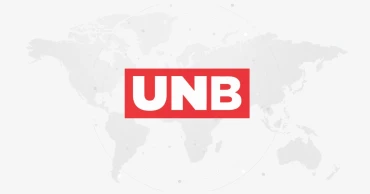
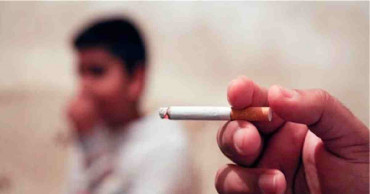
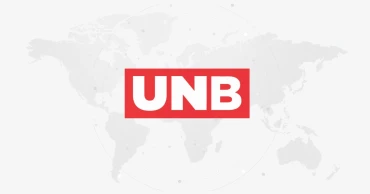
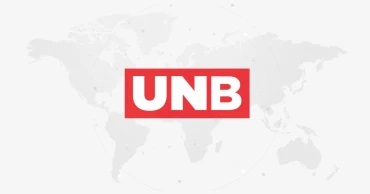

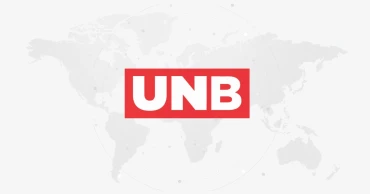
.jpg)
